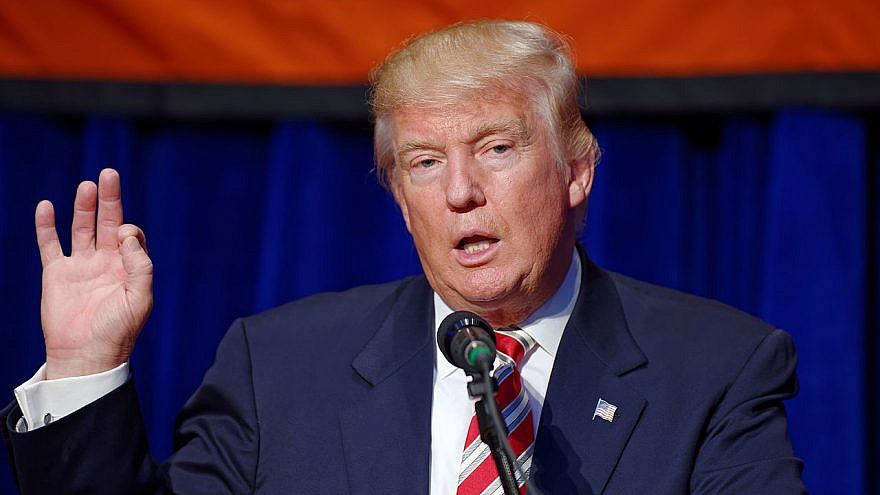If the Trump administration’s forlorn hope for restarting Middle East peace negotiations wasn’t already facing long odds, this week’s political shenanigans in Israel further complicated things.
Whether or not Israeli Prime Minister Benjamin Netanyahu miraculously persuades his frenemy Avigdor Lieberman to back away from his effort to derail the formation of a new government and plunge the country into a new, completely unnecessary election, it won’t change Washington’s plans. Trump administration officials are likely to go ahead with their planned economic summit in Bahrain in June and hope that Netanyahu can put together a government sometime this year.
Palestinian Authority leadership has already made it clear that they won’t attend the Bahrain event and won’t negotiate on the basis of Trump’s plan, which is emphasizing economic development rather than focusing solely on a “land for peace” exchange. Longtime U.S. State Department peace processor Aaron David Miller wasn’t wrong when told The New York Times that if the United States could have “bought peace in the Middle East through economic development,” it would have done so long ago.
That means it’s almost certain that the president will be denied the satisfaction of brokering a deal that eluded presidents before him. Under the current circumstances, the Palestinian leadership and the political culture that sustains them simply won’t allow it.
But that is not the only way to look at what Kushner is doing.
The first point is that in contrast to all of his predecessors, Trump has not approached negotiations as primarily an exercise in pressuring Israel. That dynamic has doomed every peace effort for the last quarter-century, as the Palestinians have been encouraged to watch and wait for the West to bring them Israeli concessions without having to do much of anything in return. To the contrary, the efforts of the Clinton, George W. Bush and Obama administrations did nothing to force the Palestinians to come to make the sea change in their political culture that would enable them to make peace, even if, as is unlikely, their leaders wanted to do so.
For one of the few times in his career, Palestinian Authority negotiator Saeb Erekat told the truth when he wrote in a New York Times op-ed last week that what Trump was doing was demanding the Palestinians’ “surrender.” But such a surrender—or rather, a realization on the part of the Palestinians that their century-old war on Zionism must be abandoned—is the necessary predicate for any hope for peace.
By flipping the script of all past efforts and downgrading the Palestinians territorial ambitions to a secondary role, and instead emphasizing plans to build the foundation for peace with economic development, Kushner has done something quite sensible.
That said, whether the Israelis can get their own act together in order to provide Trump with a partner at the table, the Palestinians aren’t interested, especially since they won’t get as much as they might have done had they chosen to accept offers of statehood put to them by past Israeli governments and American administrations.
Still, that shouldn’t end the discussion.
It’s true that the effort opens up the possibility that a failed process may, as it has in the past, encourage a new round of Palestinian violence aimed at getting the attention and sympathy of the international community by forcing Israel into a confrontation in which it will be blamed for the inevitable loss of life.
Some Israelis also worry that the plan, which is likely to involve some concessions on the West Bank, will undermine right-wing efforts to annex parts of the territories. But they need to realize that any move that seeks to remove the ambiguity that has enabled Netanyahu to ably manage the conflict for the last decade isn’t in the best interests of the Jewish state.
Kushner’s plan is also a breath of fresh air after decades of American efforts to accommodate the Palestinians’ unwillingness to admit that they’ve lost their long war against Zionism.
By focusing on economic development, the United States is offering incentives not just for peaceful cooperation, but to break down a Palestinian political structure that has up until now been solely focused on “resistance” as opposed to state-building or good governance. In its place, the Trump plan offers a template for fiscal improvement that will give the Palestinians a reason to believe that compromise is worth sacrificing their dreams of eliminating Israel, in addition to a “right of return” for descendants of the 1948 refugees who have been kept stateless so they can be used as props in the conflict.
The economic incentives on the table may—particularly if they are backed by the Arab states that are sick of the Palestinians’ intransigence—have a long-term impact on the Israeli-Palestinian conflict. That doesn’t mean all the nations headed to Bahrain will endorse Trump’s plan. However, it does mean that they are on board with changing the manner peace is discussed in a way that will further isolate Fatah and Hamas after they refuse to negotiate.
Trump can’t purchase peace, but neither will it cost him; he won’t set anything back by reminding the Palestinians that their position is getting weaker the longer they refuse to deal. That’s one step in a direction that both the United States and the international community have needed to take for decades.

























